
Niuatoputapu Island: The Hidden Gem of Tonga
Niuatoputapu Island, often referred to as the 'Sacred Island', is one of Tonga's most secluded and pristine destinations. It offers visitors a rare glimpse into the untouched beauty of the South Pacific. The island boasts lush landscapes, clear turquoise waters, and a rich cultural heritage. The local villages, largely untouched by modernity, provide a unique opportunity to experience traditional Tongan life. Snorkeling and diving enthusiasts will find the coral reefs surrounding Niuatoputapu Island to be a vibrant underwater paradise. The waters are teeming with colorful fish and other marine life, making it an ideal spot for underwater exploration. For those who prefer land-based activities, the island's hiking trails offer stunning views and a chance to see native flora and fauna. While the island is remote, the warm and welcoming locals make every visitor feel at home. The island's slow pace of life allows you to unwind and disconnect from the hustle and bustle of daily life. Whether you're exploring the island's natural beauty or immersing yourself in the local culture, Niuatoputapu Island promises an unforgettable experience.
Local tips in Niuatoputapu Island
- Bring cash, as there are no ATMs on the island and credit card facilities are limited.
- Respect local customs by dressing modestly, especially in villages.
- Pack insect repellent to protect against mosquitoes, especially during the rainy season.
- Visit during the dry season (May to October) for the best weather conditions.
Niuatoputapu Island: The Hidden Gem of Tonga
Niuatoputapu Island, often referred to as the 'Sacred Island', is one of Tonga's most secluded and pristine destinations. It offers visitors a rare glimpse into the untouched beauty of the South Pacific. The island boasts lush landscapes, clear turquoise waters, and a rich cultural heritage. The local villages, largely untouched by modernity, provide a unique opportunity to experience traditional Tongan life. Snorkeling and diving enthusiasts will find the coral reefs surrounding Niuatoputapu Island to be a vibrant underwater paradise. The waters are teeming with colorful fish and other marine life, making it an ideal spot for underwater exploration. For those who prefer land-based activities, the island's hiking trails offer stunning views and a chance to see native flora and fauna. While the island is remote, the warm and welcoming locals make every visitor feel at home. The island's slow pace of life allows you to unwind and disconnect from the hustle and bustle of daily life. Whether you're exploring the island's natural beauty or immersing yourself in the local culture, Niuatoputapu Island promises an unforgettable experience.
When is the best time to go to Niuatoputapu Island?
Iconic landmarks you can’t miss
Mapu'a Vaea Blowholes
Explore the awe-inspiring Mapu'a Vaea Blowholes in Tonga, where powerful ocean waves create a breathtaking natural spectacle amidst stunning coastal scenery.
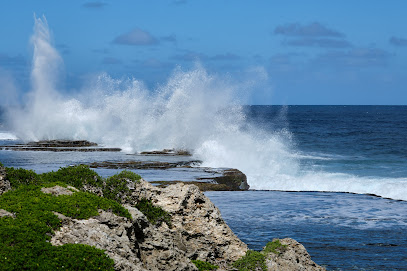
Tongatapu
Explore the stunning landscapes and rich cultural heritage of Tongatapu, the main island of Tonga, a paradise for adventure and relaxation.
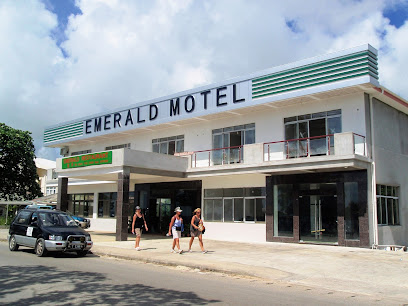
Royal Palace of Tonga
Explore the Royal Palace of Tonga, a historical gem in Nuku'alofa, where rich heritage meets stunning architecture and vibrant culture.
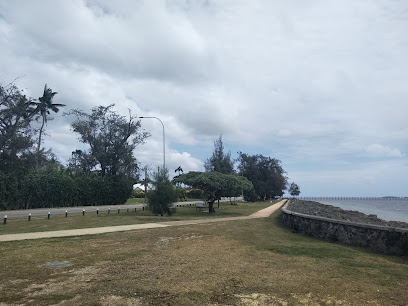
Anahulu Cave
Explore Anahulu Cave in Tonga: A stunning natural wonder with rich cultural significance and breathtaking geological formations.
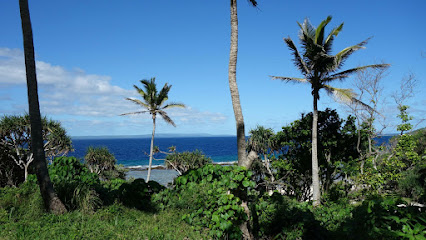
Royal Tombs
Discover the Royal Tombs, where Tongan history and culture intertwine in a breathtaking landmark of heritage and tradition.
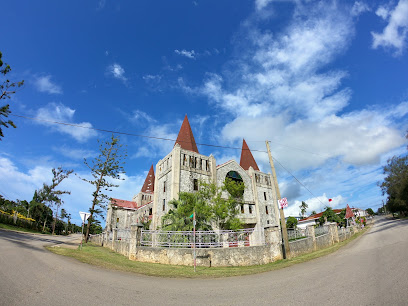
Tsunami Rock
Explore the stunning Tsunami Rock in Tonga, a natural landmark that offers breathtaking views, rich cultural history, and a perfect spot for adventure seekers.
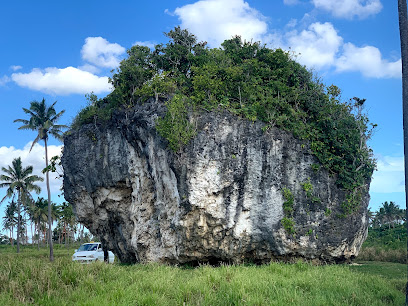
Ancient Tonga
Discover the rich cultural heritage of Tonga at Ancient Tonga, a captivating tourist attraction in Nuku'alofa, showcasing traditional crafts and history.
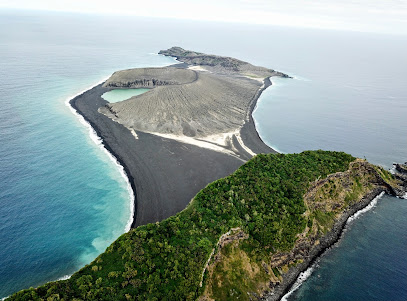
Ha'amonga 'a Maui Trilithon
Discover Ha'amonga 'a Maui Trilithon, a historical marvel in Tonga, where ancient legends and breathtaking landscapes converge.
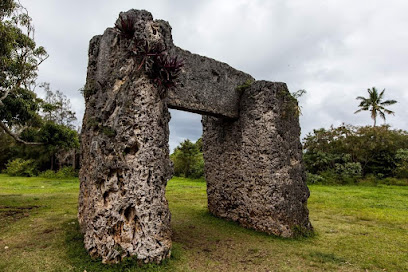
3 Headed Coconut
Explore the 3 Headed Coconut in Matahau, a unique Tongan tourist attraction celebrating nature and local cultural heritage.
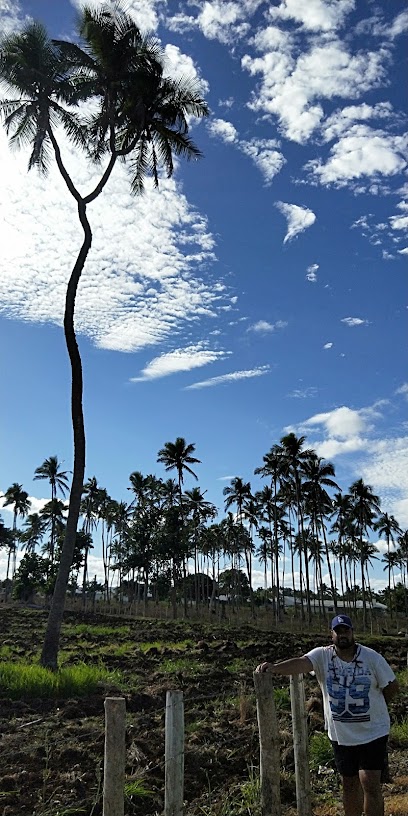
Captain Cook Landing Site
Explore the Captain Cook Landing Site, a historic landmark in Tonga where maritime history comes alive amidst stunning natural beauty.
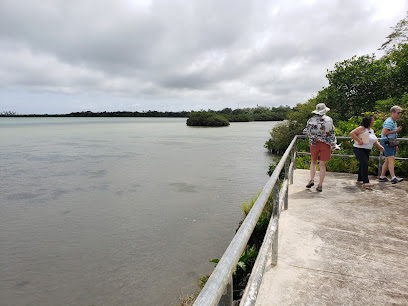
Paepae o Tele'a
Explore Paepae o Tele'a, a stunning historical landmark in Mu'a, Tonga - a captivating glimpse into the island's rich heritage and culture.
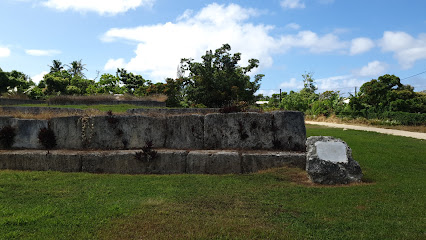
Tonga South Beach House
Experience tranquility at Tonga South Beach House, a serene resort hotel in Nuku'alofa, surrounded by beautiful beaches and rich Tongan culture.
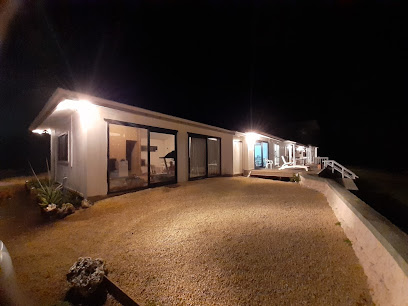
Tonga National Museum
Explore the rich cultural heritage of Tonga at the Tonga National Museum, where history and tradition come alive in Nuku'alofa.
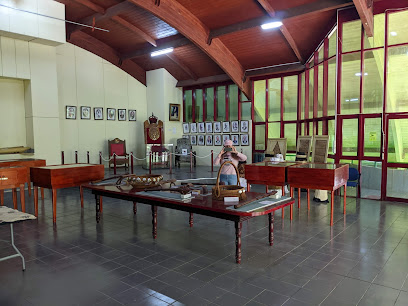
Maka Fa'akinanga
Explore Maka Fa'akinanga, a historical landmark in Niutoua, Tonga, showcasing the vibrant culture and rich heritage of the Tongan people.
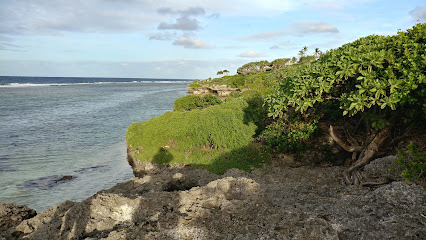
Utu'one
Experience the warmth of Tongan hospitality at Utu'one, a cozy bed and breakfast with a serene atmosphere and a delightful on-site cafe.
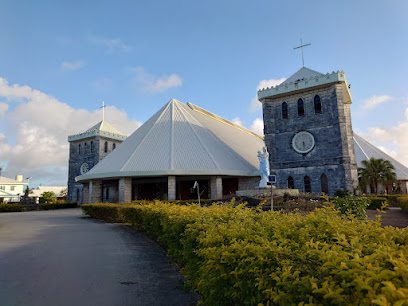
Essential places to dine
Coffee Post
Discover Coffee Post in Maufanga, Nuku'alofa - your go-to café for exquisite coffee and Tongan hospitality.
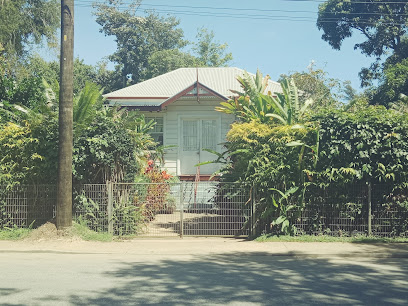
Friends Cafe
Discover authentic Tongan flavors at Friends Cafe in Nuku'alofa – where every meal tells a story.
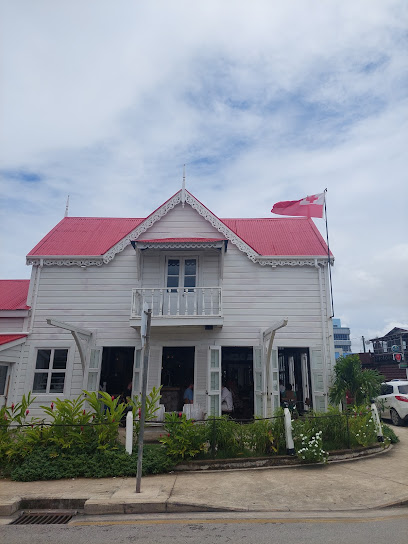
Cafe Escape
Discover Café Escape in Nuku'alofa - where local flavors meet international cuisine for an unforgettable dining experience.
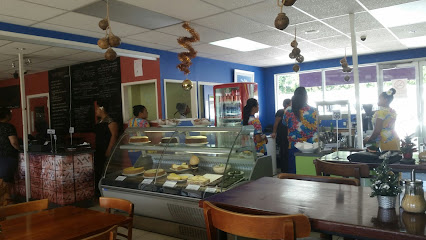
Billfish Bar and Restaurant
Discover Nuku'alofa's vibrant culinary scene at Billfish Bar and Restaurant - where delicious food meets Tongan hospitality.
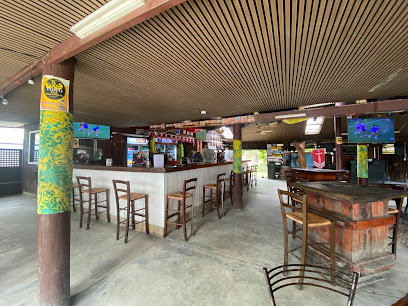
Chef Zero Restaurant
Discover authentic Tongan flavors at Chef Zero Restaurant in Nuku'alofa - where culinary tradition meets modern dining.
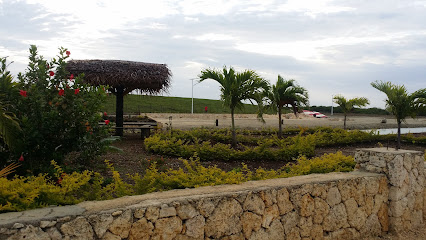
The TOP Restaurant and Lounge
Discover exquisite Tongan cuisine at The TOP Restaurant and Lounge in Nuku'alofa – where tradition meets innovation amidst stunning views.
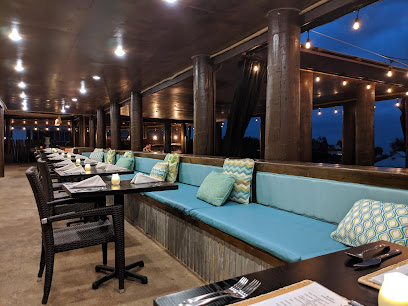
Mum's Cafe Nukualofa
Experience authentic Tongan flavors at Mum's Cafe in Nuku'alofa - where every meal tells a story.
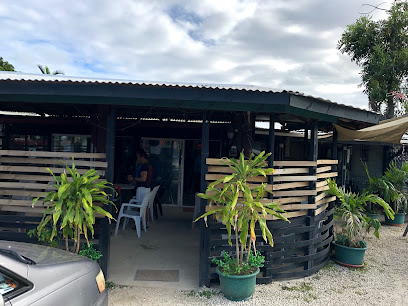
Ngutulei Bar & Restaurant
Discover authentic Tongan flavors at Ngutulei Bar & Restaurant in Nuku'alofa - where every dish tells a story.
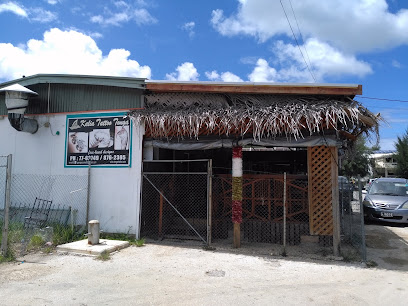
Young’s Kitchen
Discover authentic Tongan cuisine at Young's Kitchen in Nuku'alofa - where every dish tells a story.
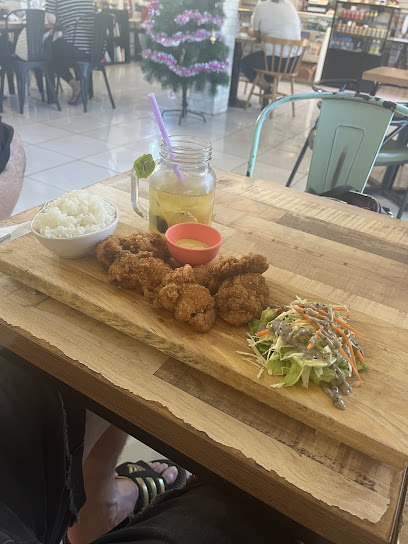
The Waterfront Cafe
Discover authentic Tongan flavors at The Waterfront Cafe while enjoying breathtaking ocean views in Nuku'alofa.
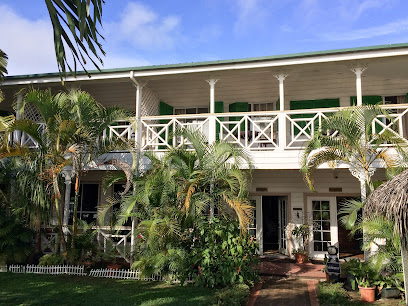
Sabrina's Chicken Vilovilo
Experience the authentic taste of Tonga with delicious barbecue at Sabrina's Chicken Vilovilo in Nuku'alofa - a culinary gem not to be missed!
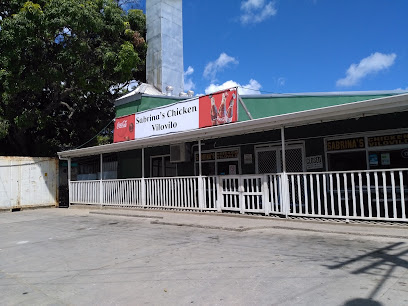
Nauti Ruby's Bar & Restaurant
Discover delicious local cuisine and stunning ocean views at Nauti Ruby's Bar & Restaurant in Nuku'alofa.
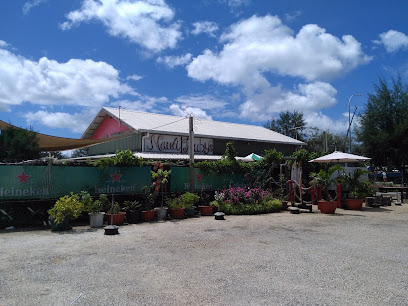
Singapore Restaurant
Savor authentic Singaporean cuisine in Nuku'alofa - a culinary journey through Southeast Asia awaits!
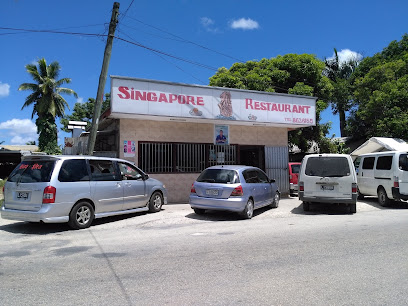
Tropical Taste
Discover the authentic flavors of Tonga at Tropical Taste in Nuku'alofa - where every dish tells a story.
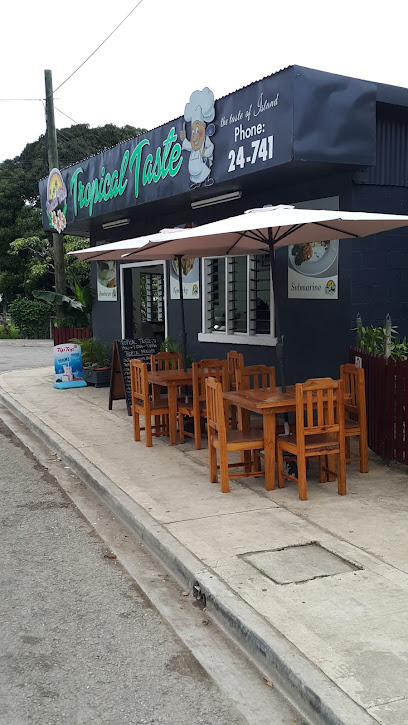
'Ofeina Restaurant
Experience authentic Tongan cuisine at 'Ofeina Restaurant - a family-friendly gem offering warm hospitality and delicious local flavors.
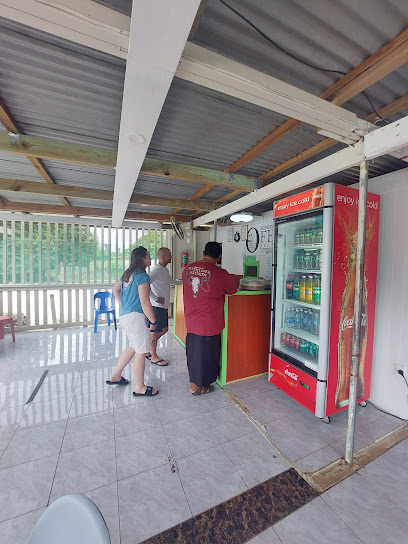
Markets, malls and hidden boutiques
Talamahu Market
Experience the authentic flavors and vibrant culture at Talamahu Market, the heart of Nuku'alofa's culinary and social scene.
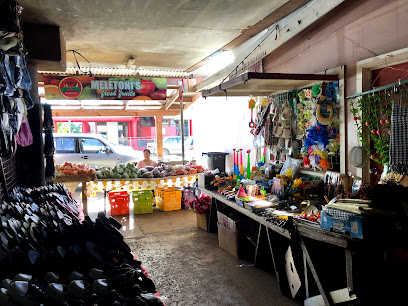
Hiki 'O Tonga
Discover Hiki 'O Tonga, where shopping meets Tongan culture in the heart of Nuku'alofa, offering unique crafts and local flavors.
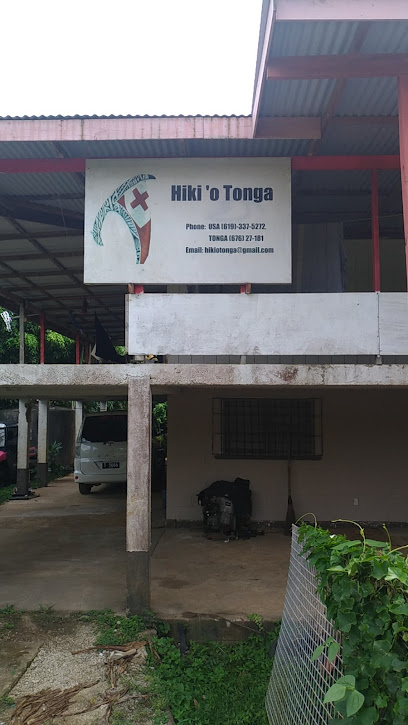
EZ TONGA ONLINE SHOPPING
Experience the best of Tonga shopping at EZ Tonga Online Shopping, your one-stop destination for local goods and essentials.

Langafonua Handicraft Centre and Gallery
Explore unique Tongan craftsmanship at Langafonua Handicraft Centre and Gallery - a cultural gem in Nuku'alofa.

Friendly Island Bookshop
Explore Tonga's culture and history at Friendly Island Bookshop, your literary gateway in Nuku'alofa.
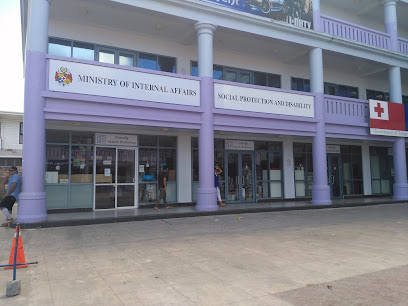
OE Store Office Equipment
Discover the charm of Nuku'alofa at OE Store Office Equipment, where shopping meets local culture and community spirit.
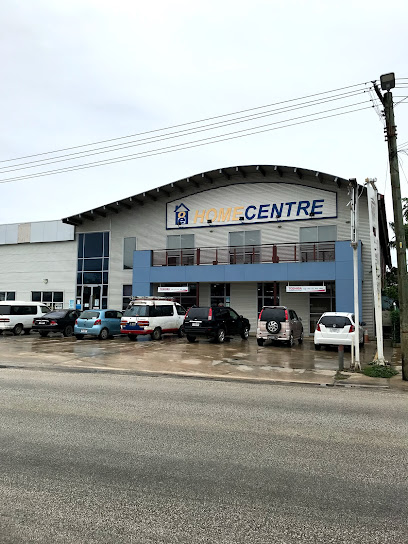
Fakafeta'i Store
Experience the warmth of Tongan hospitality at Fakafeta'i Store, your go-to destination for local products and unique souvenirs in Nuku'alofa.
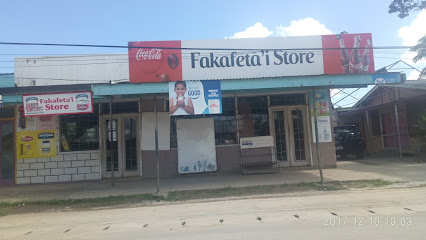
Leiola
Discover the best of Tongan brews at Leiola, a vibrant beer store in Nuku'alofa, offering an impressive selection and a welcoming atmosphere.

NIU IT
Experience the vibrant local culture at NIU IT, a top shopping destination in Pahu, Tonga, offering unique products and warm hospitality.
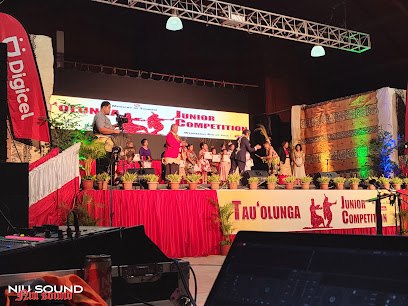
Value City (Tonga) Ltd.
Uncover unique second-hand treasures at Value City (Tonga) Ltd., a must-visit shop in Nuku'alofa for vintage lovers and eco-conscious shoppers.
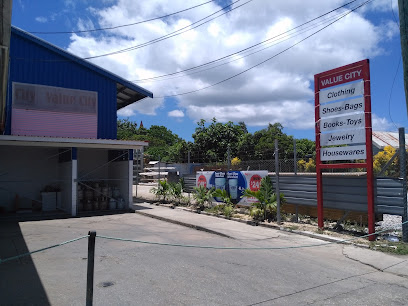
Le-Ata Tonga
Explore Le-Ata Tonga, a unique boutique in Nuku'alofa offering Tongan handicrafts and stylish apparel that reflect the vibrant culture of the islands.
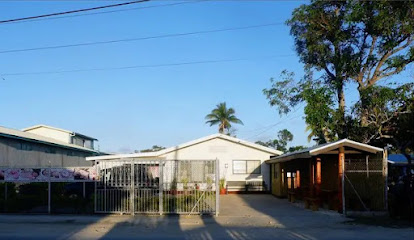
FORTUNE ISLAND SHOPPING CENTER
Discover local crafts, delicious cuisine, and vibrant culture at Fortune Island Shopping Center in Nuku'alofa, Tonga.
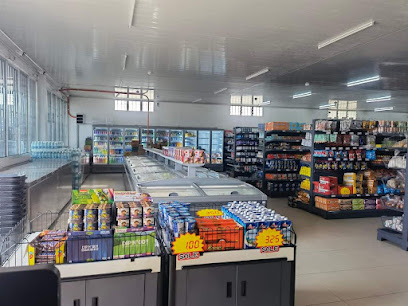
Narottam's
Discover the vibrant local fashion at Narottam's in Nuku'alofa, where culture meets style in a charming shopping experience.

Tonga Market Online
Explore the rich offerings of Tonga Market Online, where local culture and convenience meet in a vibrant online shopping experience.

Souvenirs
Explore the vibrant culture of Tonga at Niutoua's charming souvenir store, where unique crafts and local artistry await every traveler.
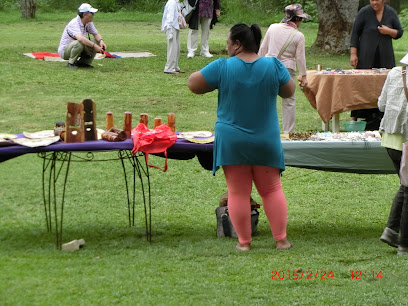
Essential bars & hidden hideouts
Tanoa International Dateline Hotel
Experience comfort and hospitality at Tanoa International Dateline Hotel in Nuku'alofa, your gateway to the stunning beauty of Tonga.

Mapu'a Vaea Blowholes
Experience the breathtaking spectacle of nature at the Mapu'a Vaea Blowholes, where ocean waves create stunning geysers along Tonga's coastline.
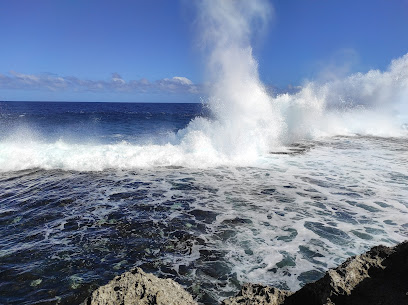
Friends Cafe
Discover authentic Tongan flavors and warm hospitality at Friends Cafe in Nuku'alofa.
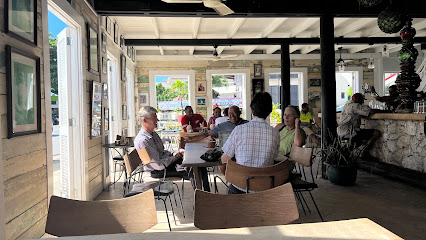
Cafe Escape
Discover the flavors of Tonga at Café Escape, a cozy restaurant in Nuku'alofa offering local and international delights.
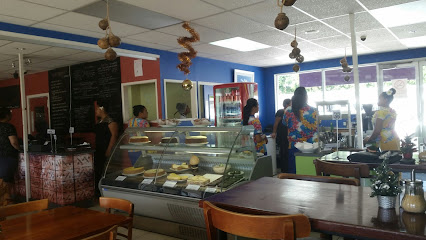
Anahulu Cave
Explore the enchanting Anahulu Cave in Tonga – a breathtaking natural wonder with stunning formations and crystal-clear waters, perfect for adventure seekers.
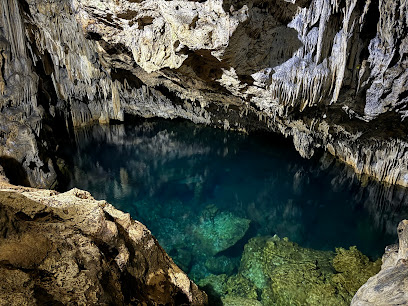
Billfish Bar and Restaurant
Discover the vibrant flavors and lively atmosphere at Billfish Bar and Restaurant in Nuku'alofa, Tonga, where local cuisine meets tropical charm.
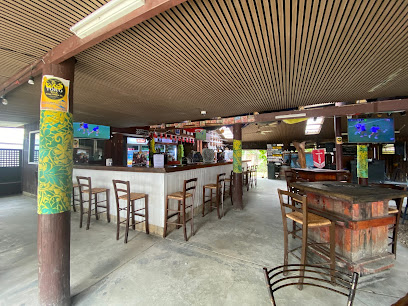
Chef Zero Restaurant
Experience the best of Tongan cuisine at Chef Zero Restaurant, where fresh ingredients meet culinary artistry in Nuku'alofa.
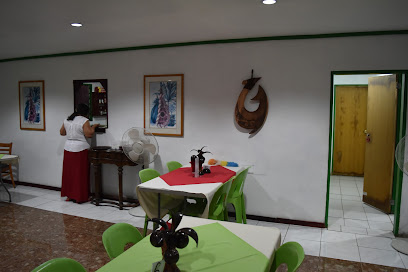
Waterfront Lodge
Discover the serene charm of Waterfront Lodge in Nuku'alofa, Tonga – your perfect retreat for relaxation and local adventure.
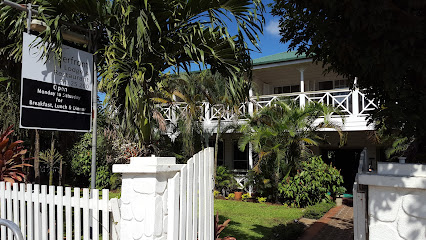
The TOP Restaurant and Lounge
Savor the authentic flavors of Tonga at The TOP Restaurant and Lounge in Nuku'alofa, where culinary tradition meets modern dining.
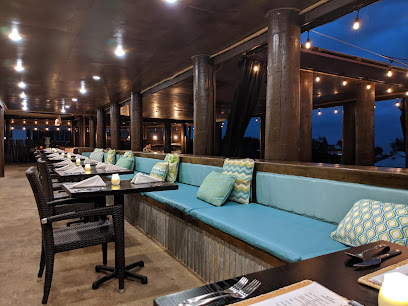
'Oholei Beach Resort
Experience the serene beauty and vibrant culture of Tonga at 'Oholei Beach Resort, where luxury meets paradise.
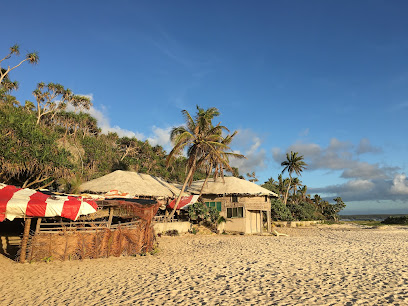
Mum's Cafe Nukualofa
Experience the flavors of Tonga at Mum's Cafe in Nuku'alofa, where authentic cuisine meets warm hospitality.
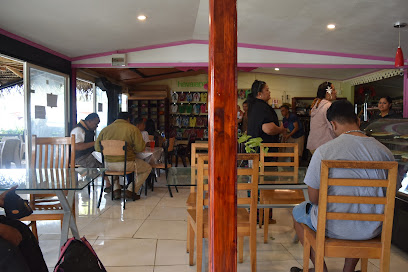
Vuna Wharf
Explore the tranquil charm of Vuna Wharf in Nuku'alofa, Tonga, where stunning ocean views meet rich cultural experiences.
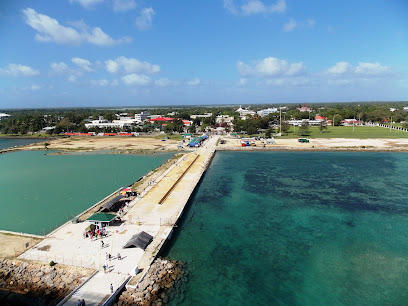
Tupu'anga Coffee Factory and Cafe
Experience the rich flavors of Tonga at Tupu'anga Coffee Factory and Cafe, where every cup tells a story of local culture and tradition.
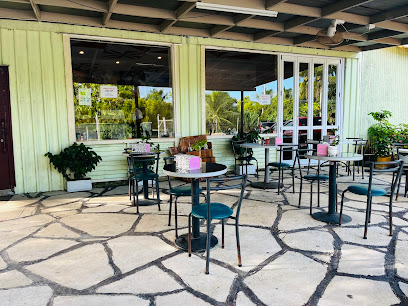
Lunarossa Deli
Discover the flavors of Tonga at Lunarossa Deli, a charming takeout restaurant in Nuku'alofa offering authentic local dishes and quick bites.
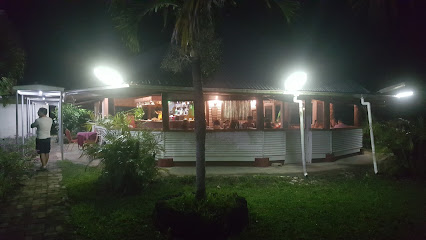
Local Phrases about Niuatoputapu Island
-
- HelloMalo e lelei
[Mah-loh eh leh-leh] - GoodbyeNofo a
[Noh-fo ah] - YesIo
[Ee-oh] - NoʻIkai
[Ee-kai] - Please/You're welcomeFakamolemole
[Fah-kah-moh-leh-moh-leh] - Thank youMalo
[Mah-loh] - Excuse me/SorryFakamālo
[Fah-kah-mah-loh] - How are you?ʻEku ha ha?
[Eh-koo hah hah] - Fine. And you?Malo. Pe ha?
[Mah-loh. Peh hah] - Do you speak English?Ko e lea faka-Pilitania?
[Koh eh leh-ah fah-kah pee-lee-tah-nee-ah] - I don't understandʻIkai ke fahakapaʻu
[Ee-kai keh fah-hah-kah-pah-oo]
- HelloMalo e lelei
-
- I'd like to see the menu, pleaseFakamolemole, ʻoku ke tau fakaʻinu
[Fah-kah-moh-leh-moh-leh, oh-koo keh tah-oo fah-kah-ee-noo] - I don't eat meatʻIkai ke ʻai e meʻa
[Ee-kai keh ah-ee eh meh-ah] - Cheers!Mālō!
[Mah-loh] - I would like to pay, pleaseFakamolemole, ʻoku ke totongi
[Fah-kah-moh-leh-moh-leh, oh-koo keh toh-tohn-gee]
- I'd like to see the menu, pleaseFakamolemole, ʻoku ke tau fakaʻinu
-
- Help!Malō!
[Mah-loh] - Go away!Foki atu
[Foh-kee ah-too] - Call the Police!Fonuaʻi ki ha Pōlisī!
[Foh-noo-ah-ee kee hah Poh-lee-see] - Call a doctor!Fonuaʻi ki he kau faiako!
[Foh-noo-ah-ee kee heh kow fah-yah-koh] - I'm lostʻOku ke lotoʻi
[Oh-koo keh loh-toh-ee] - I'm illʻOku ou mate
[Oh-koo oh mah-teh]
- Help!Malō!
-
- I'd like to buy...ʻOku ke fakatau
[Oh-koo keh fah-kah-tah-oo] - I'm just lookingʻOku ou lava
[Oh-koo oh-lah-vah] - How much is it?Koe ha anga?
[Koh-eh hah ah-ngah] - That's too expensiveTaimi koe anga
[Tah-ee-mee koh-eh ah-ngah] - Can you lower the price?ʻE lava ke kumi ha anga?
[Eh lah-vah keh koo-mee hah ah-ngah]
- I'd like to buy...ʻOku ke fakatau
-
- What time is it?Koe ha taimi?
[Koh-eh hah tah-ee-mee] - It's one o'clockʻE taha taimi
[Eh tah-hah tah-ee-mee] - Half past (10)Koe hāfata
[Koh-eh hah-fah-tah] - MorningTō
[Toh] - AfternoonʻAho
[Ah-hoh] - EveningPō
[Poh] - YesterdayʻUa
[Oo-ah] - TodayʻAe
[Ah-eh] - TomorrowʻApō
[Ah-poh] - 1Taha
[Tah-hah] - 2ua
[oo-ah] - 3tolu
[toh-loo] - 4fā
[fah] - 5nima
[nee-mah] - 6ono
[oh-noh] - 7fitu
[fee-too] - 8valu
[vah-loo] - 9hiva
[hee-vah] - 10ʻumi
[oo-mee]
- What time is it?Koe ha taimi?
-
- Where's a/the...?ʻI he...
[Eh heh] - What's the address?Ko e tuʻa?
[Koh eh too-ah] - Can you show me (on the map)?ʻE lava ke fakahaʻi mai
[Eh lah-vah keh fah-kah-hah-ee mah-ee] - When's the next (bus)?ʻE hano e tā
[Eh hah-noh eh tah] - A ticket (to ....)Tikite
[Tee-kee-teh]
- Where's a/the...?ʻI he...
History of Niuatoputapu Island
-
Niuatoputapu Island, one of the northernmost islands of Tonga, has a rich history of ancient Polynesian settlements. Archaeological evidence suggests that the island was first inhabited around 1500 BCE by Lapita people, known for their distinctive pottery. These early settlers were skilled navigators and fishermen who established a thriving community on the island, utilizing its abundant marine resources.
-
The first recorded European contact with Niuatoputapu Island occurred in 1616, when Dutch explorers Jacob Le Maire and Willem Schouten arrived during their expedition across the Pacific. They named the island 'Cocos Eylant' due to the abundance of coconut trees. This marked the beginning of European interest in Tonga, which would later lead to further exploration and eventual colonization efforts.
-
In the late 18th and early 19th centuries, Niuatoputapu played a crucial role in the unification of Tonga under King George Tupou I. The island's strategic location and resources made it a key target for consolidation. By 1845, King George Tupou I had successfully unified most of the Tongan islands, including Niuatoputapu, establishing a centralized monarchy that would shape the nation's future.
-
On September 29, 2009, a devastating tsunami struck Niuatoputapu Island following an 8.1 magnitude earthquake in the South Pacific. The tsunami caused significant damage to the island's infrastructure and claimed the lives of nine residents. The disaster prompted international aid and a concerted effort to rebuild and strengthen the island's resilience against future natural disasters. This event remains a poignant chapter in the island's recent history.
-
Niuatoputapu Island is renowned for its vibrant cultural traditions, which are celebrated through various annual festivals. One of the most significant is the 'Tonga Day' festival, held on November 4th, which commemorates the island's heritage and history. The festival features traditional Tongan dances, music, and feasts, offering both locals and visitors a glimpse into the island's rich cultural tapestry.
Niuatoputapu Island Essentials
-
Niuatoputapu Island is part of Tonga's northernmost island groups. The most common way to get there is by a domestic flight from Tongatapu (Fua'amotu International Airport) to Niuatoputapu Airport, operated by Real Tonga Airlines. Flights are not daily, so it's essential to check the schedule and book in advance. An alternative, though less frequent, is traveling by boat from Vava'u or Tongatapu. This journey can be quite long and depends on weather conditions.
-
On Niuatoputapu Island, transportation options are limited. The primary modes of transport are bicycles and walking, as the island is small and distances are manageable. There are a few vehicles on the island, and you can sometimes arrange a ride with locals for a small fee. It's a good idea to bring a bicycle if you plan to explore extensively. There is no formal public transport system on the island.
-
The official currency of Tonga is the Tongan Pa'anga (TOP). There are no ATMs on Niuatoputapu Island, so it is crucial to bring enough cash for your stay. Credit cards are generally not accepted on the island, and there are no banking facilities. Plan to carry enough TOP for all your needs, including accommodations, food, and souvenirs.
-
Niuatoputapu Island is a very safe destination with low crime rates. However, as with any travel destination, it’s wise to take standard precautions. Keep your belongings secure and be aware of your surroundings, especially in more secluded areas. There are no specific neighborhoods with high crime rates targeting tourists. The local community is generally friendly and welcoming.
-
In case of emergency, the local health clinic on Niuatoputapu Island can provide basic medical care. For more serious medical issues, evacuation to Tongatapu may be required. It is advisable to have comprehensive travel insurance that covers medical emergencies and evacuation. The emergency number in Tonga is 911, but response times may vary due to the island's remote location.
-
Fashion: Do dress modestly, especially when visiting villages or religious sites. Avoid wearing revealing clothing. Religion: Do respect local customs and traditions. Attend church services if invited, and dress conservatively. Public Transport: Do be prepared to walk or cycle. There is no formal public transport. Greetings: Do greet people with a warm 'Malo e lelei' (Hello). A friendly wave is also appreciated. Eating & Drinking: Do try local dishes and accept food graciously. Don't refuse hospitality, as it can be considered impolite.
-
To experience Niuatoputapu Island like a local, engage with the community by visiting local markets and participating in village events. Respect the pace of island life and take the time to chat with residents, who are often eager to share their culture and stories. Don't miss out on the beautiful natural scenery, including pristine beaches, lush forests, and the island's unique marine life. Consider joining a fishing trip or a traditional feast for an authentic experience.
Trending Landmarks in Niuatoputapu Island
Nearby Cities to Niuatoputapu Island
-
Things To Do in Foa
-
Things To Do in Pangai
-
Things To Do in Nuku'alofa
-
Things To Do in Neiafu
-
Things To Do in Ha'apai
-
Things To Do in Vava'u
-
Things To Do in Eua
-
Things To Do in Kolovai
-
Things To Do in Levuka
-
Things To Do in Nausori
-
Things To Do in Suva
-
Things To Do in Rakiraki
-
Things To Do in Savusavu
-
Things To Do in Sigatoka
-
Things To Do in Labasa








